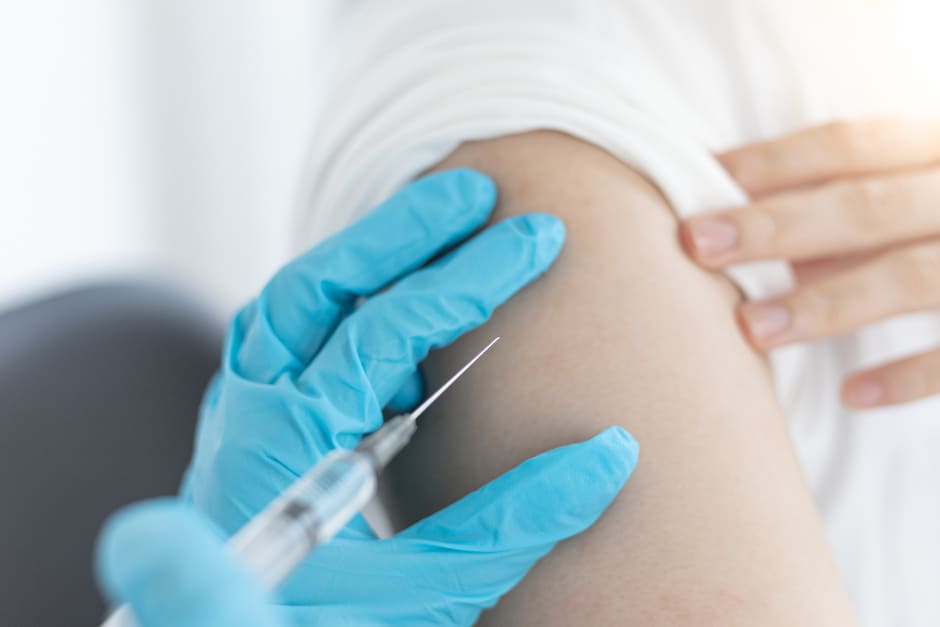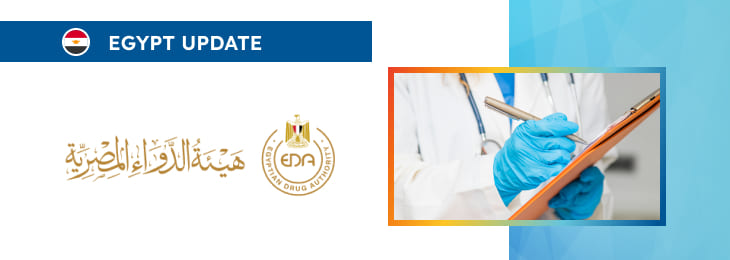The new article provides additional clarifications regarding various specific aspects to be taken into consideration by the parties responsible for clinical investigations intended to be conducted in Egypt.

Table of content
The Egyptian Drug Authority (EDA) has published the guidelines for Good Regulatory Oversight of clinical trials. The document provides an overview of the applicable regulatory requirements in Egypt, as well as additional clarifications and recommendations to be taken into consideration by the parties responsible for clinical investigations in order to ensure the safety of study participants, as well as the accuracy and reliability of the results.
The authority also reserves the right to make changes to the guidelines and recommendations provided, should such changes be reasonably necessary to reflect corresponding amendments to the underlying regulations.
Inspection of Clinical Medical Research
In accordance with the applicable legislation, the EDA, in collaboration with the Supreme Council, is responsible for inspecting research sites, bioequivalence centers, and other entities related to clinical medical research. The primary goal of these inspections is to ensure compliance with Good Clinical Practice (GCP) standards.
The EDA is authorized to:
- Prepare inspection plans for research sites and related entities.
- Review documents, records, and installations relevant to clinical medical research.
- Verify adherence to research protocols and GCP compliance.
- Ensure that national and international GCP standards are being followed.
- Monitor any deviations and document inspection findings in a report.
- Follow up on periodic reports concerning the ongoing clinical medical research.

Inspection Plan
The inspection plan is based on a risk-based approach, and inspections can occur at any stage of the clinical trial—before initiation, during the trial, or after its completion. This ensures that GCP guidelines are maintained throughout the research process.
- Routine Inspections: Applicants will be notified two weeks before the inspection date for clinical medical research and three days before for bioequivalence studies. The applicant must confirm the availability of the Principal Investigator (PI), Co-PI, and other personnel as required.
- Triggered Inspections: In certain cases, triggered inspections may be conducted with only 24 hours notice to the applicant.
- Follow-Up Inspections: These inspections may be conducted to ensure corrective or preventive actions (CAPA) are implemented or after amendments are made to the research. Applicants will be notified one week before the follow-up inspection.
Inspection Report
The inspection report outlining findings will be sent to the applicant within 15 days after the inspection. Findings are categorized into three levels:
- Critical: Involves major deviations, data manipulation, or misrepresentation.
- Major: A pattern of deviations or numerous minor observations.
- Minor: Areas requiring improvement but not as serious as major findings.
Corrective and Preventive Action (CAPA) Plan
After receiving the inspection report, the applicant must submit a CAPA plan using the appropriate template (Template Forms 9.9) within 20 days. If there are delays, two reminder letters will be sent at five-day intervals.
If the applicant fails to respond, the matter will be escalated to the Head of Bio-Inn.
IMP Samples Collection
In cases where the quality of the investigational medicinal product (IMP) is questioned during a GCP inspection or scientific evaluation, EDA inspectors may collect samples. These samples will be stored under the same conditions until analyzed by the relevant administration.
The analysis report will be issued, and a decision will be made within 30 days based on EDA’s regulations.
Technical Support for Preclinical and Clinical Trials
Technical support for preclinical and clinical data helps streamline the evaluation process, making it more efficient. Although technical support facilitates the robustness of the evidence, it does not influence the rigorous assessment of the safety and efficacy of the research.
To request technical support, applicants must submit an application form (Template Forms 9.10) along with the technical support data and proof of payment. The submission must be made to Bio-Inn both electronically and in hard copy.
Preliminary screening occurs within 10 days, and applicants are notified of any missing documents, which must be submitted within 15 days. Extensions may be granted if valid reasons are provided.
The technical support dossier is reviewed according to national and international guidelines. If necessary, the scientific committee may review critical issues to aid in the final decision.
Applicants are required to respond to any requests for clarification within 10 days, with possible extensions for justifiable reasons. The EDA will issue a technical support report within 60 days of submission, though this timeline may be extended if additional requirements are raised during the evaluation process.
Principal Investigator (PI) Criteria and Responsibilities
The guidelines set out specific qualifications and responsibilities for Principal Investigators (PIs) in clinical medical research.
Criteria for Principal Investigators:
- The PI must have the necessary academic qualifications, training, and experience to conduct medical research.
- They must be of good reputation and free from any personal conflicts of interest.
- The PI must not have been convicted of any crime of honor or honesty unless pardoned or exonerated.
Responsibilities Before the Study
Before commencing the study, the PI must:
- Obtain all required approvals and the informed consent of research subjects.
- Ensure that the research protocol is approved and registered in the designated database.
- Select research subjects impartially in accordance with the approved protocol.
Sponsor/CRO Responsibilities
Sponsors or Contract Research Organizations (CROs) also have defined responsibilities, including:
- Obtaining all necessary approvals and funding the research.
- Ensuring proper documentation and compliance with GCP.
- Submitting progress reports to the institutional review board (IRB) and the Supreme Council.
- Notifying research subjects of any changes to the study and providing necessary medical interventions.
- Arranging insurance contracts for research subjects to cover any injuries sustained during the study.
General Considerations for Clinical Trials in Egypt
According to the guidelines, clinical trials for new medical interventions developed within Egypt can progress through all phases (I, II, III, IV) if each stage is approved by the EDA. For medical interventions developed outside Egypt, only phases III and IV can be conducted, provided that clinical trials are concurrently conducted in reference countries and preclinical or earlier clinical data have been reviewed by the EDA.
The guidelines apply to all interventional medical research in Egypt, including new investigational products and medical devices, whether pharmaceutical, biological, or herbal. Locally manufactured medical devices must first receive technical file approval from the Central Administration of Medical Devices before clinical trial protocol submission.
For non-interventional clinical trials, only IRB approval is required, and EDA should be notified prior to study initiation.
Conclusion
In summary, these guidelines outline the comprehensive regulatory framework for conducting clinical medical research in Egypt. Through inspections, technical support, and the involvement of qualified PIs and sponsors, the EDA ensures that clinical trials adhere to national and international GCP standards. This framework protects the safety of study participants while maintaining integrity and high standards of research quality and reliability.
How Can RegDesk Help?
RegDesk is an AI-powered Regulatory Information Management System that provides medical device companies with regulatory intelligence for over 120 markets worldwide. It can help you prepare and publish global applications, manage standards, run change assessments, and obtain real-time alerts on regulatory changes through a centralized platform. Global expansion has never been this simple.

